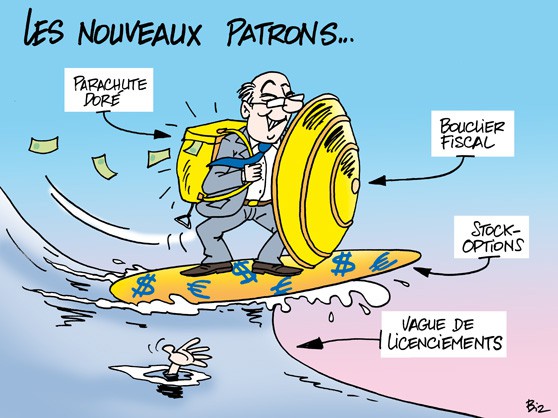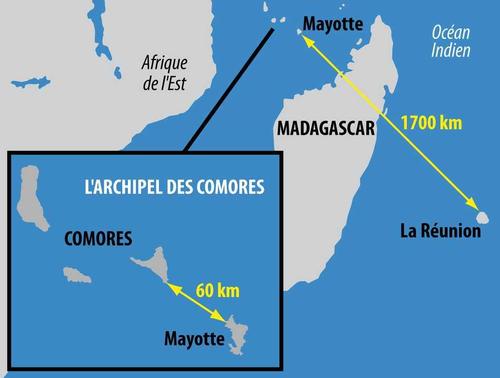 Patrick Drahi’s Altice — new owner of Suddenlink and presumed next owner of Cablevision — has been caught dealing with the scandalous Panamanian law firm Mossack Fonseca, which specializes in helping wealth-soaked billionaires and politicians evade taxes.
Patrick Drahi’s Altice — new owner of Suddenlink and presumed next owner of Cablevision — has been caught dealing with the scandalous Panamanian law firm Mossack Fonseca, which specializes in helping wealth-soaked billionaires and politicians evade taxes.
Altice’s name came up in the Panama Papers, a leak of over 11 million documents taken from the law firm. Although admitting it had dealings with Mossack Fonseca in 2008 and 2010, an Altice official claimed it was only for “incidental transactions for reasons of strict confidentiality and in perfectly legal conditions with no tax impact, let alone foreign, near or far, for any purpose of evasion, concealment, or tax optimization.” But critics are asking why a Swiss national running a cable conglomerate in Francophone Europe would hire an obscure law firm in Panama City to manage those “incidental transactions.”
Failed Consolidation Merger Keeps the Price Wars Going
Altice has been having a tough April. First, its participation in a three-way plot to consolidate the French wireless industry and end ongoing competitive price wars that benefit consumers turned out to be for nothing. Orange and Bouygues Telecom were set to merge, but likely only after divesting certain assets to Altice’s Numericable-SFR. The transaction fell apart when the two larger carriers couldn’t guarantee they’d each make a financial killing from the deal, and antitrust authorities were grumbling they might be willing to hammer anything that would likely boost prices for French consumers.
Last year, Wall Street was very pleased with Altice’s strategy of buying up other telecom companies, squeezing costs out of their operations through pay cuts, layoffs, and stiffing vendors, and then using customer revenue to leverage even more acquisitions. Altice enjoys significant support from asset managers like Vanguard, BlackRock, T. Rowe Price, and Fidelity. But their portfolios began taking beatings after Altice’s financial performance became an open question. More than a million customers dropped Altice-owned SFR-Numericable in the last year, citing poor performance.
Loaded in Debt, Altice Jumps into Junk Bond Market Twice in One Week
 The company’s massive debt load also continues to be a major concern. This week, Altice dipped into the junk bond markets not once, but twice, seeking to refinance their enormous debts. Yesterday, Altice went looking for $2.75 billion. Today it was expected to be back looking for $1.5 billion more, which is the third time Drahi has looked for money from investors comfortable with significant risk.
The company’s massive debt load also continues to be a major concern. This week, Altice dipped into the junk bond markets not once, but twice, seeking to refinance their enormous debts. Yesterday, Altice went looking for $2.75 billion. Today it was expected to be back looking for $1.5 billion more, which is the third time Drahi has looked for money from investors comfortable with significant risk.
Drahi’s buyout of Cablevision in a $17.7 billion deal was financed with similar junk bonds and leveraged loans. If his acquisition is approved, it may have a profound impact on Cablevision customers in downstate New York, Connecticut, and New Jersey.
At Cablevision, Profits Will Come Before Employees, Customers
Drahi is insisting on driving Cablevision’s profit margins to as high as 50% while promising to slash $1 billion in costs out of the operation. Much of those savings will come from salary and job cuts at Cablevision and Newsday, the last remaining daily newspaper printed on Long Island.
“I don’t like to pay salaries,” Drahi said. “I pay as little as I can … No one in our company is making more than a couple hundred thousand a year.”
Altice CEO Dexter Goei noted there were more than 300 Cablevision employees making $300,000 or more a year. Their days are likely numbered. But that will only be the beginning.

Mayotte and Reunion are French territories off the coast of East Africa near Madagascar.
“I suspect Altice is going to come in and slash jobs, streamline operations and work to identify the quickest method of becoming profitable,” said Kevin Kamen, an area media broker. “One of the first places they’ll target for job consolidation will be Newsday, mark my words. They will also cut jobs at Cablevision in the long-run. Wherever they can save cost overruns and produces efficiency they will. Trust and believe. They are not about to invest billions in a sinking ship. I would also expect to see price increases across the board within a year for all subscribers regardless of how competitive the market is.”
French Competition Authority Fines Altice $17 Million for Sabotaging a Future Competitor
But before Drahi can put his earnings in the bank, he will have to share them with the French government, which today fined Altice $17 million dollars for breaking promises to French regulators.
In 2014, Altice won approval of its acquisition of Francophone mobile carrier SFR after agreeing to divest certain assets in places where it would give Altice a virtual monopoly on service. In the Indian Ocean region, the acquisition of SFR by Altice would give the Drahi operation a combined 66% market share in Reunion, 90% in Mayotte. To preserve competition, French regulators insisted Altice sell its Outremer Telecom operations in the two French territories to a third party. Until that sale was complete, Altice agreed to protect the economic viability, marketability, and competitiveness of the soon to be sold unit.
Instead, the Competition Authority discovered Altice suddenly jacked up the price of Outremer Telecom’s service between 17-60% and allowed customers to walk out of their contracts without any financial penalty. As a result, the future owner of Outremer Telecom would own a business that had already lost a substantial number of customers as a result of the price hike, out of character for a provider with an earlier reputation of low priced service.
Regulators suspect Altice might have intentionally sabotaged the business they were required to eventually spin-off, giving their own operation a competitive advantage.


 Subscribe
Subscribe